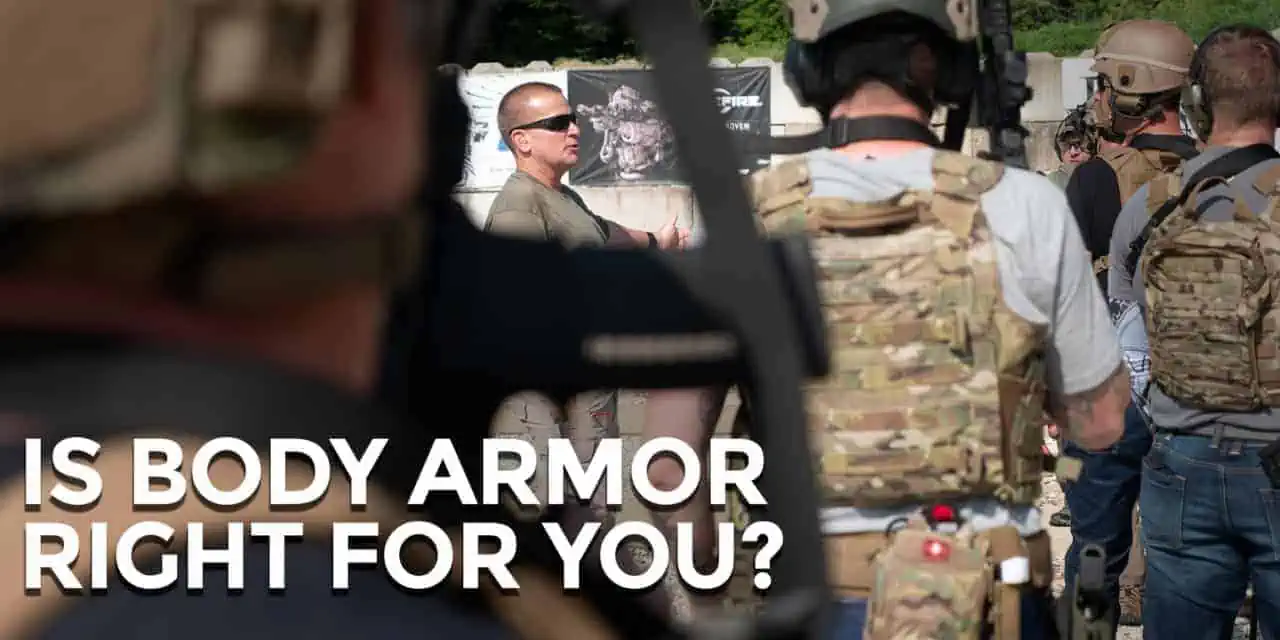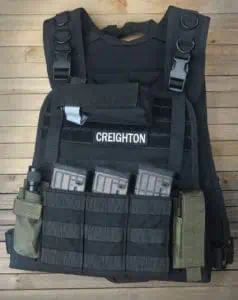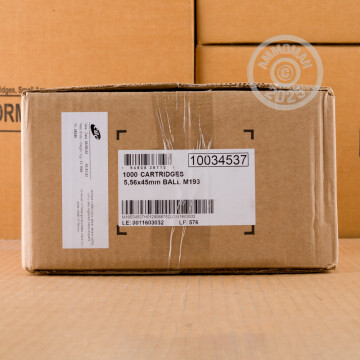Body Armor – Not Just for Military & L.E.?
It wasn’t all that long ago when body armor/bulletproof vests/flak jackets were heavy, hard to wear, and not all that effective against most kinds of bullets. Technology has rapidly improved. Now, easy to wear body armor/bulletproof vests are commonly available to civilians for reasonable prices.
Is It Legal for Armed Citizens to Buy Body Armor?
Well, yes. Yes you can.
You may have some trouble buying a full-body suit like the bomb-disposal units wear, but other than that, you can find just about everything you want.
Body armor is legal to own in all 50 states. However, there are a few wrinkles.
If you live in any state except Connecticut, you can buy bullet-resistant vests and body armor and have it shipped to your front door, or buy it in-store from a retailer. You can still buy body armor in Connecticut but you must buy it face-to-face in a store.
What Kinds of Civilian Body Armor Are There?
There are two kinds of body armor available for civilian use: soft armor usually made of advanced polymers like Kevlar® and similar materials, and hard plates made from hardened steel, ceramics, and other materials.
In general, soft body armor is sufficient to stop most handgun calibers and buckshot loads. Soft armor is not up to the task of guarding against a rifle round though.
You can wear soft armor as a separate concealed garment under your clothes or as an insert in a dedicated plate carrier. Hard plates are rigid, inflexible, and heavier than soft armor. You’ll likely struggle to conceal them compared to soft body armor. Most civilians wear hard plates inside a plate carrier that sits outside their clothing.
Body Armor Levels
Body armor is defined by the National Institute of Justice.
The NIJ 0101.06 Standard is the most current. It defines body armor by how powerful a round it can reliably stop without penetration.
- Level IIA: Tested to stop 9mm and .40 S&W fired from short barrel handguns. No rifle ammunition protection.
- Level II: Tested to stop 9mm and .357 Magnum ammunition fired from short barrel handguns. No rifle ammunition protection.
- Level IIIA: Tested to stop .357 SIG and .44 Magnum ammunition fired from longer barrel handguns. No rifle ammunition protection.
- Level III: Tested to stop 7.62mm FMJ lead core rifle ammunition.
- Level IV: Tested to stop .30 cal steel core piercing rifle ammunition.
Downsides To Owning Body Armor
Expiration Date
Chemical adhesives hold the materials inside every piece of body armor together. Every piece of armor comes with an expiration date when those chemicals are no longer guaranteed to hold everything together. If the parts separate, that can impact how well it stops incoming rounds.
Manufacturers print the expiration date for a given piece of armor right on it (mine expire sometime in 2025,). Heavy wear and environmental factors such as heat and high humidity can also speed up the expiration date of your armor. Keep in mind, then, that whether you’re buying a soft bullet-resistant vest or a Level IV hard plate that will stop a rampaging .30-06 bullet in its tracks, your armor will give up its effectiveness one day and will need to be replaced.
Limited Utility
Unless you make your living kicking doors or calling in airstrikes, body armor, especially the hard plates that stop rifle rounds, is not for everyday wear.
For the average joe, walking around in a plate carrier in any circumstance other than a severe looting situation is probably not a good idea. Soft body armor can be concealed under your clothes, but it won’t stop a rifle round. And, it shares another problem with hard plates, which is that…
Body Armor is Hot and Heavy
A loaded Glock 19 weighs just under two pounds. Add in a spare magazine, holster, and the other items of your everyday carry gear, and you’re probably looking at carrying around five pounds more than the average unarmed person does. With a pair of soft body armor inserts weighing over 3 pounds by themselves, and hard plates weighing in at around four pounds apiece (and that’s for the “lightweight” model), wearing body armor means weighing yourself down even more than you already are.
Should You Own Body Armor?
Good question. To be honest, for years my answer to this question was “No, I don’t need it. I’m not a soldier or a cop. They need bulletproof vests, not me.”
Then one night, as I was sitting on my front porch during the darkness after Hurricane Irma rolled over my neighborhood, a car started slowly driving down my street. This was long after the county-wide curfew made such activities against the law. There I was with a pistol on my hip, flashlight in my hand, and a rifle close by. As the car drove past (and thankfully kept on going without incident), it occurred to me that in situations of increased tension having something on my body to stop incoming fire might not be a bad idea.
When crews restored our power and things settled down a bit, I went out and bought an inexpensive plate carrier and a pair of Level III hard plates. I don’t plan on using my body armor any time soon. It’s there for defensive purposes in the most dire of circumstances. However, it’s nice to know it’s there if I really, really need it.
What About Other Options?
Because of a perceived rise in school shootings, there has been an uptick in interest in items such as bullet-resistant backpacks and seat covers that have bullet-resistant inserts. Most of these, however, have inserts that are rated IIIA, meaning they stop penetration of pistol rounds, not rifle rounds. As rifle has been the weapon of choice for most recent mass shooters, these backpacks would have little, if any, effect.
Should You Buy Body Armor Now?
How Long Will It Be Legal?
Body armor has played an unfortunate role in at least one of the recent mass shootings.
Senate Minority Leader Chuck Schumer has called for legislation increasing the regulations on who can buy body armor, which would, in effect, severely restrict its use by armed civilians. Senator Schumer is in the minority right now, so there is probably little chance of this bill becoming law in the near future. However, the idea is out there now, and if other atrocities are committed by people wearing body armor, the idea may come around again.
Is A Bullet-Resistant Vest Right For You?
As I said before, I originally dismissed the idea that any sort of body armor was right for me. I’m not a high-value target like a diplomat or wealthy businessman, and I live in the suburbs, not Somalia. I don’t kick in doors for a living, and I’m not going to go patrol the streets at night in a squad car. However, an increased level of potential violence in my immediate vicinity made me realize that I needed not only increased firepower, but increased protection as well.
Having a half-dozen AR-15s on-hand for personal safety is well and good, but those rifles aren’t all that good at blocking incoming rounds from hitting something that will put you out of the fight for the rest of your life. If you’re at the point where you have a wide array of firearms dedicated to self defense, it may be time to consider purchasing some body armor to back up your skill with your gun and keep you in the fight no matter what happens.




